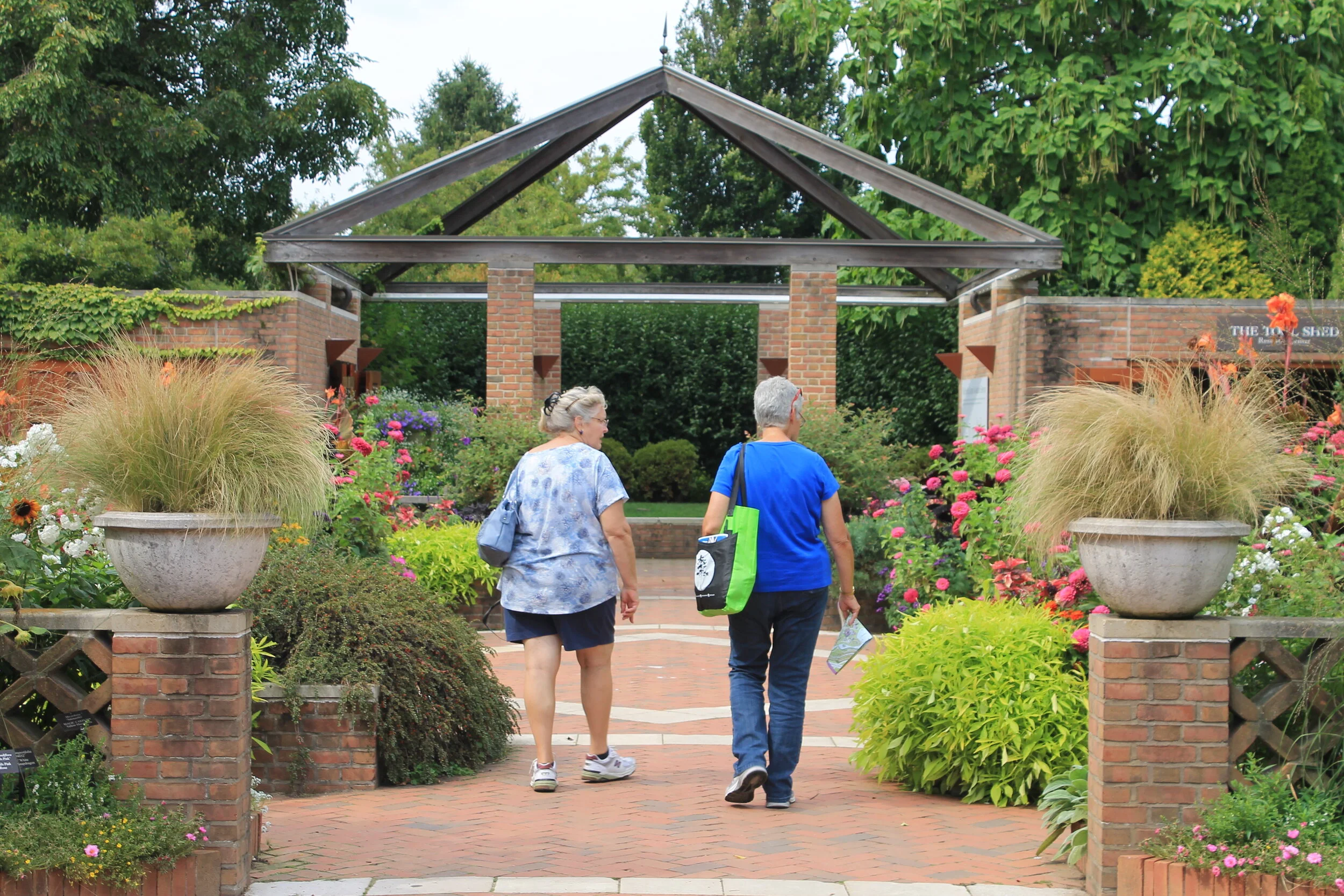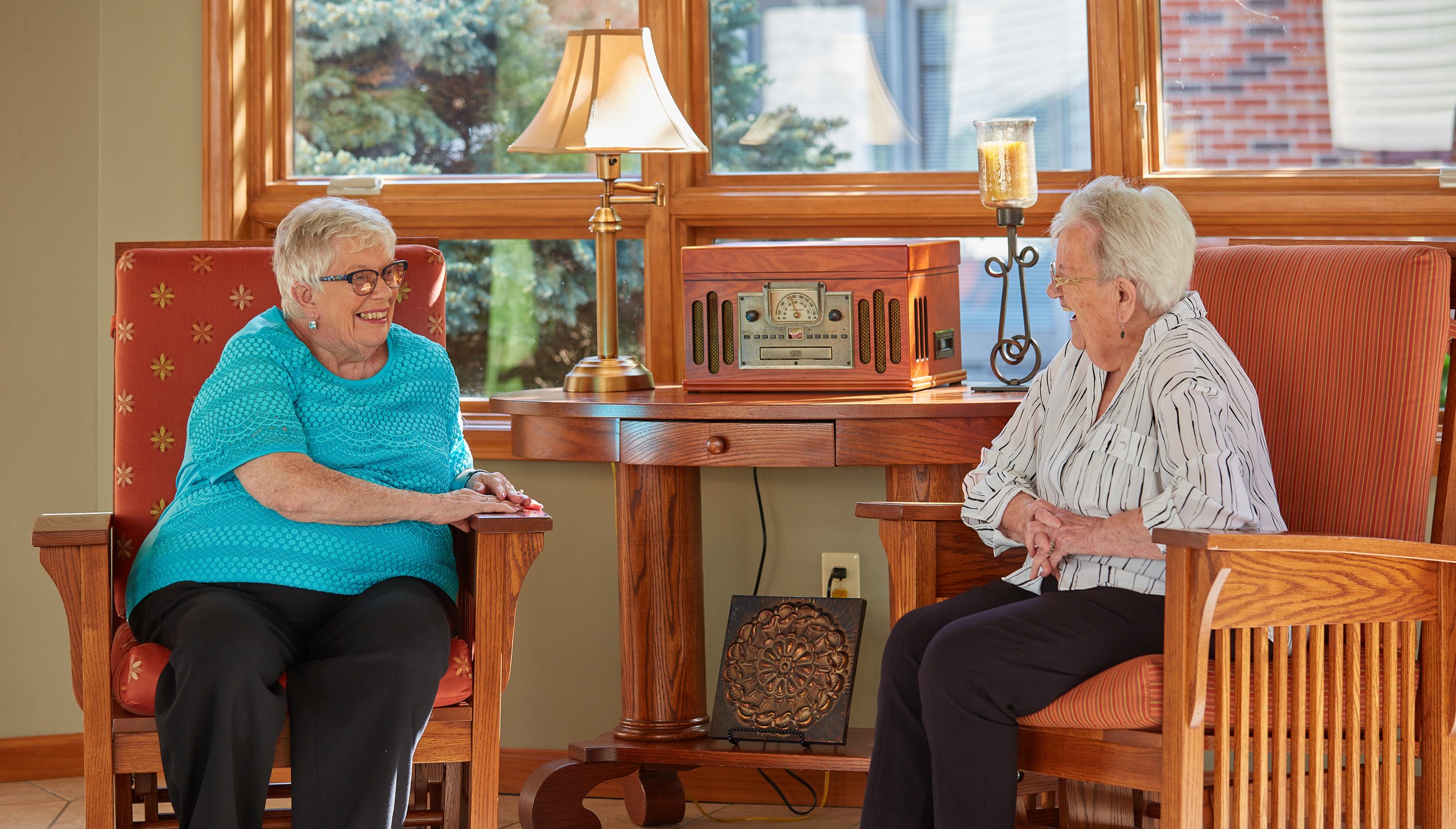Socialization is an essential part of life for people of all ages. Socializing is how we communicate with others, update people about our lives, share stories, and bond with one another. While socialization is integral in the lives of everyone, it is especially important for seniors. In this article, we’ll look at the connection between socialization and seniors, and ways for seniors to get more social.
Residents enjoy a social hour together with appetizers and beverages.
Why Is Socialization Important for Seniors
Socialization is important for seniors because it helps to prevent feelings of loneliness and isolation. While feeling lonely is difficult on its own, it can also lead to other health issues and impact your overall well-being. A University of California San Francisco research study found that over 40% of older adults report feelings of loneliness, even when they don’t live alone. These feelings can be even more prevalent during holidays and other special occasions.
Other research found that social isolation is a major risk factor for increased morbidity and mortality, especially among older adults. This means that not socializing enough doesn't only affect your mood, but it can also increase your risk of developing other diseases and illnesses. Let’s look at some of the specific benefits of socializing:
Mental Health and Emotional Benefits
Socializing with others frequently has mental and emotional benefits, like improving self-esteem and confidence. When seniors get social and have meaningful interactions with others, they feel good and their mood improves. They also have the opportunity to receive support from the individuals they socialize with, which allows them to feel seen and heard. This helps them to avoid feeling anxious and lonely, and even helps to prevent depression.
Cognitive Benefits
Social seniors can also enjoy cognitive benefits from their time spent with others. A study from Penn State found that individuals who had social interactions on one day had better cognitive performance in the following days. This is even more important because feeling lonely and isolated can increase the risk of developing diseases that impact cognitive ability—like dementia and Alzheimer’s disease. Routine socialization reduces this risk, and can actually enhance cognitive performance.
Physical Benefits
Social interactions also provide physical benefits for older adults because how we feel mentally and emotionally directly impacts how we feel physically. Social interactions are so important that our bodies actually need them—like we need food and water—for healthy cellular function. So, when we socialize with others, our body functions better and improves our overall well-being. Socialization also can limit the risk of developing health conditions like high blood pressure, heart disease, and obesity.
Social Benefits
It shouldn’t be any surprise that socialization also has social benefits. When older adults socialize, they are more likely to have fewer negative feelings, higher levels of physical activity, and greater positive moods. This means they are likely to socialize more and continue to receive the many benefits of socialization, as well as meeting new people and making friends in the process.
If you’ve never stopped to think about it, you might not have realized just how crucial socialization is to living a long, healthy life. Now that we know why socializing is so important for seniors, let’s look at some ways that older adults can increase their socialization.
Ways To Increase Socialization for Older Adults
Use Technology
Technology has made interacting with others easier than it’s ever been. With only a phone, tablet, or computer, older adults can socialize with others using text messages, applications like Zoom and FaceTime, and many other methods—all in an instant. There are many great technological devices that older adults can use to keep in touch with their loved ones, as well as expanding their social circle by meeting new people.
However, it’s important for older adults to practice internet safety, and be aware of online scams that target older individuals. This means never giving out personal information, deleting emails and messages from individuals you don’t recognize, and keeping your accounts safe with secure, unique passwords.
Join a Social Club
While technology allows for easy and instant socialization, there’s simply no replacing in-person interactions. One of the ways for older adults to increase their socialization is to find social clubs for seniors. These clubs usually involve a shared interest—like playing games, reading books, knitting, getting outdoors, and more—and are a great way for seniors to interact with other people.
Volunteer
Volunteering is another great way for older adults to socialize. When volunteering, seniors get to talk to, interact, and bond with others—both the people they are helping and other volunteers. Another benefit of volunteering is that older adults are able to support the causes near to their hearts, and help to make the world a better place. There are many opportunities to volunteer, many of which may even be in their own neighborhoods or communities!
Move to a Senior Living Community
Perhaps the best way for older adults to increase socialization is to move to a senior living community. These communities allow seniors to live close to other people their age, many of whom often share the same interests. Senior living communities also include many opportunities to socialize through planned activities, outings, exercise classes, volunteer opportunities, and many others!
Pines Village Retirement Communities, Inc. is a nonprofit senior living community in Valparaiso, Indiana, with two campuses: Pines Village and Meridian Woods. The Pines Village campus offers pet-friendly independent living apartments with the option to add assistive services à la carte or in packages. The Meridian Woods campus consists of maintenance-free paired homes and Campbell St. Cafe, which, in addition to being a restaurant open to the public, hosts events and acts as a meeting space for residents and local nonprofits.
At Pines Village, we celebrate life by enriching the lives of older adults. We pride ourselves on our culture, which is driven by a passion for serving the residents, visitors, and staff of Pines Village as well as the greater Valparaiso community. Explore our senior apartment availability, learn more about our assisted living options, or contact us with any questions today!







